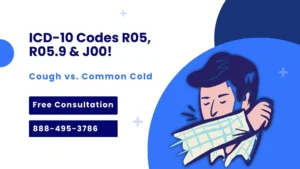The Health Insurance Portability and Accountability Act, or HIPAA, is a set of federal regulations that protect the privacy of patients’ health information. HIPAA covers everything from medical records and insurance information to laboratory test results and X-rays. Under HIPAA, only authorized individuals are allowed to access this information. However, there have been a number of high-profile HIPAA breaches in recent years. In some cases, hackers have gained access to patient records.
In other cases, employees of healthcare organizations have inappropriately accessed or disclosed patient information. These breaches can have serious consequences for patients, including identity theft and fraud. To help protect yourself, it’s important to be aware of the signs that your personal health information may have been breached. If you receive unsolicited calls or emails from someone claiming to be from a healthcare organization, be wary.
If you are asked for personal health information that you didn’t give out yourself, be suspicious. And if you receive unexpected bills for medical services you didn’t receive, it’s possible that your information has been compromised. By being alert to these signs, you can help protect yourself from becoming a victim of a HIPAA breach.
Understand the importance of HIPAA compliance
In 1996, the Health Insurance Portability and Accountability Act (HIPAA) was enacted by the US Congress. The legislation was designed to improve the portability and continuity of health insurance coverage, as well as to protect the confidentiality and security of protected health information (PHI). In order to comply with HIPAA, covered entities must take reasonable steps to safeguard PHI from unauthorized disclosure. This includes implementing physical, administrative, and technical safeguards such as firewalls, encryption, and access controls. Covered entities must also provide employees with training on HIPAA compliance and establish procedures for responding to incidents of non-compliance. Failure to comply with HIPAA can result in significant penalties, including fines of up to $1.5 million per violation. As a result, it is essential for covered entities to understand and adhere to the requirements of HIPAA.
Implement measures to protect electronically protected health information (ePHI)
The HIPAA Security Rule requires covered entities to implement safeguards to protect the confidentiality, integrity, and availability of electronically protected health information (ePHI). There are administrative, physical, and technical safeguards that must be in place to meet this requirement. Administrative safeguards are policies and procedures put in place by covered entities to ensure the security of ePHI. Physical safeguards are measures taken to secure the physical environment where ePHI is stored or accessed. Technical safeguards are measures taken to secure the electronic transmission of ePHI. The HIPAA Security Rule does not mandate any specific safeguards but does require covered entities to assess their own risks and put in place appropriate measures to protect ePHI. Covered entities must also review and update their safeguards on a regular basis.
Train employees on proper handling of ePHI and HIPAA regulations
As the healthcare industry increasingly moves towards electronic record-keeping, it’s important that employees are properly trained on how to handle electronically protected health information (ePHI). The Health Insurance Portability and Accountability Act (HIPAA) sets strict rules on how ePHI can be accessed, used, and disclosed, and violators can face significant penalties. To avoid inadvertently violating HIPAA regulations, employees should receive comprehensive training on the proper handling of ePHI. This training should cover topics such as when ePHI can be accessed, how it should be safeguarded, and what to do if there is a breach of security.
By taking the time to train employees on the proper handling of ePHI, healthcare organizations can help to ensure compliance with HIPAA regulations and protect the confidentiality of patient information.
Have a contingency plan in case of a HIPPA breach
A contingency plan is a must in case of a data breach. It helps to ensure that you have a plan in place to dealing with the aftermath of a data breach, such as notifying affected individuals and managing reputation damage. By having a contingency plan, you can minimize the impact of a data breach and help to protect your organization’s reputation. Here are some steps to take to create a contingency plan:
1. Assess the risks: Identify what could happen in the event of a data breach and prioritize the risks.
2. Create a team: Assemble a team of individuals who will be responsible for implementing the contingency plan.
3. Develop procedures: Draft procedures for dealing with a data breach, including steps for notification, damage control, and recovery.
4. Test the plan: Regularly test the contingency plan to ensure that it is effective and up-to-date.
Regularly review and update policies and procedures related to HIPAA compliance
Reviewing and updating policies and procedures related to HIPAA compliance is an important part of maintaining a compliant practice. The constantly changing landscape of healthcare and the ever-evolving regulatory environment make it necessary to regularly review and update policies and procedures.
Doing so helps to ensure that all staff members are aware of the latest requirements and that the practice remains in compliance with federal regulations. Additionally, reviewing and updating policies and procedures on a regular basis helps to identify potential areas of risk and allows practices to take steps to mitigate those risks. By taking a proactive approach to policy review and update, practices can help to ensure that they remain in compliance with HIPAA requirements.
Stay updated on changes to HIPAA regulations and guidelines
As a healthcare professional, it is essential to stay up-to-date on changes to HIPAA regulations and guidelines. The Health Insurance Portability and Accountability Act is a federal law that establishes standards for protecting the confidentiality of patient health information. HIPAA regulations are constantly evolving, and it is important to be familiar with the latest provisions in order to ensure compliance.
There are numerous resources available to help keep you informed of changes to HIPAA, including the HHS website and various news sources. In addition, there are many online courses and training programs that can provide you with comprehensive information about HIPAA compliance. By staying up-to-date on HIPAA regulations, you can help protect the confidentiality of your patients’ health information.
Final Words
In order to ensure the safety and privacy of patient health information, it is important for healthcare organizations to comply with HIPAA regulations. By implementing measures such as employee training, regular policy reviews, and a contingency plan, you can protect your ePHI from accidental or intentional breaches. If you have any questions about HIPAA compliance or would like more guidance on how to get started, please contact our team of experts at Providers Care Billing LLC. We are here to help you protect the privacy of your patients and maintain compliance with HIPAA regulations.





